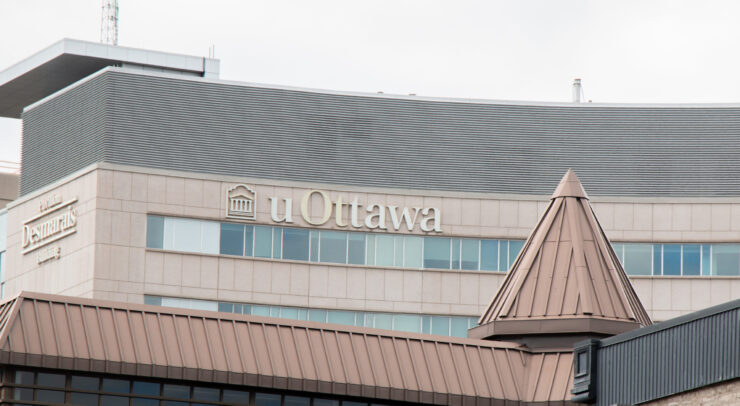Controversial perspectives help students become more nuanced and are completely consistent with diversity — that is, unless one is only interested in a certain type of diversity
Dear Editor,
At the University of Ottawa, a report issued by the Committee on Academic Freedom has been
framed in the media as a win for professors (here and here) and a loss for students (here and
here). Indeed, the Committee states that “there is no right not to feel offended since academic
freedom protects controversial and hurtful statements.” Its members also oppose “the exclusion
of words, works or ideas” in the dissemination of knowledge.
That said, it is too early to celebrate any victory. Since the Committee acts in an advisory
capacity, its recommendations are not legally binding. Jacques Frémont, president of the
University of Ottawa, can weigh their importance vis-à-vis multicultural values. As the report
cautions, academic freedom cannot come “at the expense of silencing marginalized people and
groups.”
Frémont remains confident, however, that academic freedom can coincide with the equality,
diversity, and inclusion (EDI) work on campus. But what happens when BIPOC students
(“Black, Indigenous, and People of Colour”) are presented with alternative narratives that
directly challenge their worldview?
Consider plausible classroom scenarios. What if a professor discusses warfare among
Indigenous cultures in pre-Columbian North America, specifically, material goods and slaves
acquired during raids by Iroquois, Algonquin, and Huron tribes? Ironically, the motives behind
these armed clashes — wealth acquisition, territorial aspirations, and control over trade
routes — mirrored those of their European colonizers.
Although Indigenous students may feel triggered by this discourse, its inclusion is pedagogically sound. It demonstrates that a crucial aspect of decolonizing the curriculum — namely,
confronting one’s own colonizing practices — also applies to Indigenous studies.
Slavery was even prevalent in many East, West, and Central African societies — for example,
the Ghana and Mali empires — before and during the trans-Atlantic slave trade. In fact, powerful
African kings and merchants sold slaves to markets in Europe, Haiti, Brazil, and the United
States.
One of the richest, most influential East African slave traders was Tippu Tip. During his
expeditions into eastern and central Africa, he and a contingent of men would round up Africans
and march them to the Indian Ocean coast bound in chains. In Zanzibar, enslaved workers in
the thousands helped to develop Tip’s clove plantations. Consequently, he became a wealthy,
respected upper-class gentleman.
Would Black students be receptive to the fact that prominent Africans were complicit in slavery?
Would they confront this injustice with the same zeal as slavery in the American South?
Likewise, what if a professor introduces the main detractors of critical race theory (CRT)? These
include John McWhorter, who believes that its adherents have turned it into a religion; Andrew
Sullivan, who asserts that CRT weakens liberal principles; and Randall Kennedy, who debunks
hyperbolic claims of systemic racism on university campuses.
Undoubtedly, some BIPOC students will experience a form of cognitive dissonance. A few may
accuse the professor of threatening their inherent dignity or disrespecting their group identity.
But controversial perspectives help students become more nuanced and are completely
consistent with diversity — that is, unless one is only interested in a certain type of diversity.
For academic freedom to flourish, professors require latitude that reaches beyond the
classroom. Most importantly, they must reject the Committee’s proposal that “a diversity and
inclusion training program should be established.” Documents recently leaked to Quillette editor
Jonathan Kay expose how EDI instruction is ideologically motivated to suit the preferred
worldview of its adherents and academic administrators sympathetic to their cause. Instead,
educators should interrogate EDI methodologies, not subscribe to them unconditionally.
Moreover, universities should avoid taking public positions on issues that remain largely unproven. For instance, Frémont signed the Scarborough Charter “to combat systemic anti-Black racism.” As well, the special advisor on anti-racism and inclusive excellence, professor Boulou Ebanda de B’béri, released an anti-racism progress report to help the University “end systemic racism within its walls.”
What neither is willing to admit publicly is that the University of Ottawa has never completed an
independent campus study on systemic racism. Although anecdotal evidence exists, it is
completely unreliable. It tells us nothing about the probability of experiencing racial
discrimination. There is nothing wrong with acknowledging our ignorance in this regard.
EDI enthusiasts disagree. They want administrators to state unequivocally that systemic racism
is a campus reality, but such firm political stances signal to the academic community that
contrasting views are unwelcome. This results in self-censorship by professors and creates a
climate of fear and intimidation, concerns revealed in the Committee’s report.
Lastly, university administrators and professors should denounce popular calls to punish
colleagues for what they say. In the fall of 2020, Frémont supported the suspension of professor Verushka Lieutenant-Duval’s class when she uttered the ‘N-word’ during an anti-discrimination exercise. Frémont’s rationale was twofold: first, racialized students’ “right to dignity should be respected”; and second, “members of dominant groups simply have no legitimacy to decide what constitutes a micro-aggression.”
Setting aside the fact that “dignity” is a contested term, what constitutes a “microaggression” is
itself problematic. Nick Haslam, professor of psychology at the University of Melbourne, wrote
in The Conversation that its definition is too “amorphous and elastic,” adding that it “fails to
appreciate the ambiguity of social interaction, relies too exclusively on subjective perceptions,
and too readily ascribes hostile intent.” In other words, BIPOC students who feel offended are
not immune to errors in judgement.
Scholars must remain vigilant whenever academic freedom collides with diversity. The former
can be compromised by EDI activists, who in turn will only be pacified once their demands to
censor ‘offensive’ remarks or ‘dangerous’ ideas are met by university administrators.
Stuart Chambers, PhD, teaches at the school of sociological and anthropological studies at the
University of Ottawa. Contact: schamber@uottawa.ca





